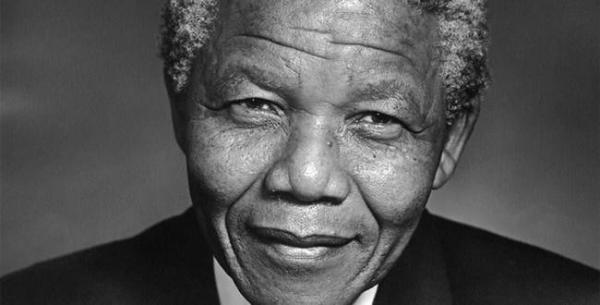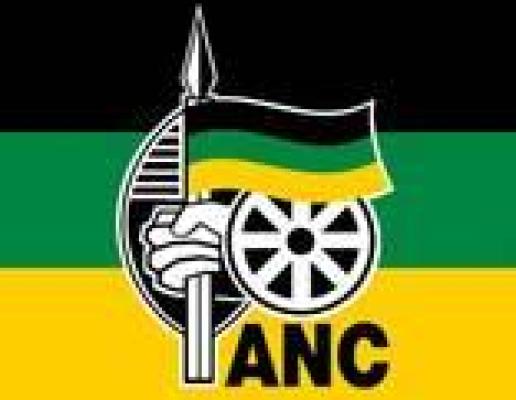

Visit the Nelson Mandela Museum
1918
Mr Mandela was born into the royal family of the Tembu at Qunu, near Umtata, on 18 July 1918.
His father was the principal councillor to the Acting Paramount Chief of Thembuland. However, influenced by the cases that came before the Chief s court, he was determined to become a lawyer. Hearing the elders stories of his ancestors valour during the wars of resistance in defence of their fatherland, he dreamed also of making his own contribution to the freedom struggle of his people.
After receiving a primary education at a local mission school, Nelson Mandela was sent to Healdtown, a Wesleyan secondary school of some repute where he matriculated. He then enrolled at the University College of Fort Hare for the Bachelor of Arts Degree where he was elected onto the Student's Representative Council.
He was suspended from college for joining in a protest boycott.
1942
After his suspension he went to Johannesburg where he completed his BA by correspondence, took articles of clerkship and commenced study for his LLB. He entered politics in earnest while studying in Johannesburg by joining the African National Congress in 1942.
At the height of the Second World War a small group of young Africans, banded together. These young people set themselves the formidable task of transforming the ANC into a mass movement, deriving its strength and motivation from the unlettered millions of working people in the towns and countryside, the peasants in the rural areas and the professionals.
1942
Their chief contention was that the political tactics of the old guard' leadership of the ANC, reared in the tradition of constitutionalism and polite petitioning of the government of the day, were proving inadequate to the tasks of national emancipation. In opposition to the old guard', Lembede and his colleagues espoused a radical African Nationalism grounded in the principle of national self-determination. In September 1944 they came together to found the African National Congress Youth League (ANCYL).
1947
Mandela soon impressed his peers by his disciplined work and consistent effort and was elected to the Secretaryship of the Youth League in 1947.
1949
The Programme of Action, inspired by the Youth League, which advocated the weapons of boycott, strike, civil disobedience and non-co-operation was accepted as official ANC policy.
1952
Mandela himself was elected to the NEC at national conference. The ANCYL programme aimed at the attainment of full citizenship, direct parliamentary representation for all South Africans. Mandela and his co-accused had consistently advised their followers to adopt a peaceful course of action and to avoid all violence. For his part in the Defiance Campaign, Mandela was convicted of contravening the Suppression of Communism Act and given a suspended prison sentence. Shortly after the campaign ended, he was also prohibited from attending gatherings and confined to Johannesburg for six months. During this period of restrictions, Mandela wrote the attorneys admission examination and was admitted to the profession.
During the fifties, Mandela was the victim of various forms of repression. He was banned, arrested and imprisoned. For much of the latter half of the decade, he was one of the accused in the mammoth Treason Trial, at great cost to his legal practice and his political work.
1961
With the ANC now illegal the leadership picked up the threads from its underground headquarters. Nelson Mandela emerged at this time as the leading figure in this new phase of struggle. Under the ANC's inspiration, 1,400 delegates came together at an All-in African Conference in Pietermaritzburg during March 1961. Mandela was the keynote speaker. In an electrifying address he challenged the apartheid regime to convene a national convention, representative of all South Africans to thrash out a new constitution based on democratic principles. Failure to comply, he warned, would compel the majority (Blacks) to observe the forthcoming inauguration of the Republic with a mass general strike. He immediately went underground to lead the campaign. Although fewer answered the call than Mandela had hoped, it attracted considerable support throughout the country. The government responded with the largest military mobilisation since the war, and the Republic was born in an atmosphere of fear and apprehension.
Forced to live apart from his family, moving from place to place to evade detection by the government s ubiquitous informers and police spies, Mandela had to adopt a number of disguises. Sometimes dressed as a common labourer, at other times as a chauffeur, his successful evasion of the police earned him the title of the Black Pimpernel. It was during this time that he, together with other leaders of the ANC constituted a new specialised section of the liberation movement, Umkhonto we Sizwe, as an armed nucleus with a view to preparing for armed struggle. At the Rivonia trial, Mandela explained : "At the beginning of June 1961, after long and anxious assessment of the South African situation, I and some colleagues came to the conclusion that as violence in this country was inevitable, it would be wrong and unrealistic for African leaders to continue preaching peace and non-violence at a time when the government met our peaceful demands with force.
It was only when all else had failed, when all channels of peaceful protest had been barred to us, that the decision was made to embark on violent forms of political struggle, and to form Umkhonto we Sizwe...the Government had left us no other choice."
In 1961 Umkhonto we Sizwe was formed, with Mandela as its commander-in-chief. In 1962 Mandela left the country unlawfully and travelled abroad for several months. In Ethiopia he addressed the Conference of the Pan African Freedom Movement of East and Central Africa, and was warmly received by senior political leaders in several countries. During this trip Mandela, anticipating an intensification of the armed struggle, began to arrange guerrilla training for members of Umkhonto we Sizwe.
1962
Not long after his return to South Africa Mandela was arrested and charged with illegal exit from the country, and incitement to strike.
Since he considered the prosecution a trial of the aspirations of the African people, Mandela decided to conduct his own defence.
He applied for the recusal of the magistrate, on the ground that in such a prosecution a judiciary controlled entirely by whites was an interested party and therefore could not be impartial, and on the ground that he owed no duty to obey the laws of a white parliament, in which he was not represented.
Mandela prefaced this challenge with the affirmation: "I detest racialism, because I regard it as a barbaric thing, whether it comes from a black man or a white man."
Mandela was convicted and sentenced to five years imprisonment. While serving his sentence he was charged, in the Rivonia Trial, with sabotage. Mandela s statements in court during these trials are classics in the history of the resistance to apartheid, and they have been an inspiration to all who have opposed it. His statement from the dock in the Rivonia Trial ends with these words:
"I have fought against white domination, and I have fought against black domination. I have cherished the ideal of a democratic and free society in which all persons live together in harmony and with equal opportunities. It is an ideal which I hope to live for and to achieve. But if needs be, it is an ideal for which I am prepared to die."
Mandela was sentenced to life imprisonment and started his prison years in the notorious Robben Island Prison, a maximum security prison on a small island 7Km off the coast near Cape Town
1980
Mandela rejected an offer of release on condition that he renounce violence. Prisoners cannot enter into contracts. Only free men can negotiate, he said.
1984
In April 1984 he was transferred to Pollsmoor Prison in Cape Town.
1988
1988 he was moved the Victor Verster Prison near Paarl.
1990
Released on 11 February 1990, Mandela plunged wholeheartedly into his life's work, striving to attain the goals he and others had set out almost four decades earlier. In 1991, at the first national conference of the ANC held inside South Africa after being banned for decades, Nelson Mandela was elected President of the ANC while his lifelong friend and colleague, Oliver Tambo, became the organisation's National Chairperson.
At the first national conference of the ANC held inside South Africa after being banned for decades, Nelson Mandela was elected President of the ANC.
Despite terrible provocation, he has never answered racism with racism. His life has been an inspiration, in South Africa and throughout the world, to all who are oppressed and deprived, to all who are opposed to oppression and deprivation.
1993
In a life that symbolises the triumph of the human spirit over man's inhumanity to man, Nelson Mandela accepted the 1993 Nobel Peace Prize on behalf of all South Africans who suffered and sacrificed so much to bring peace to our land.
1994
Nelson Mandela became the President of South Africa.


